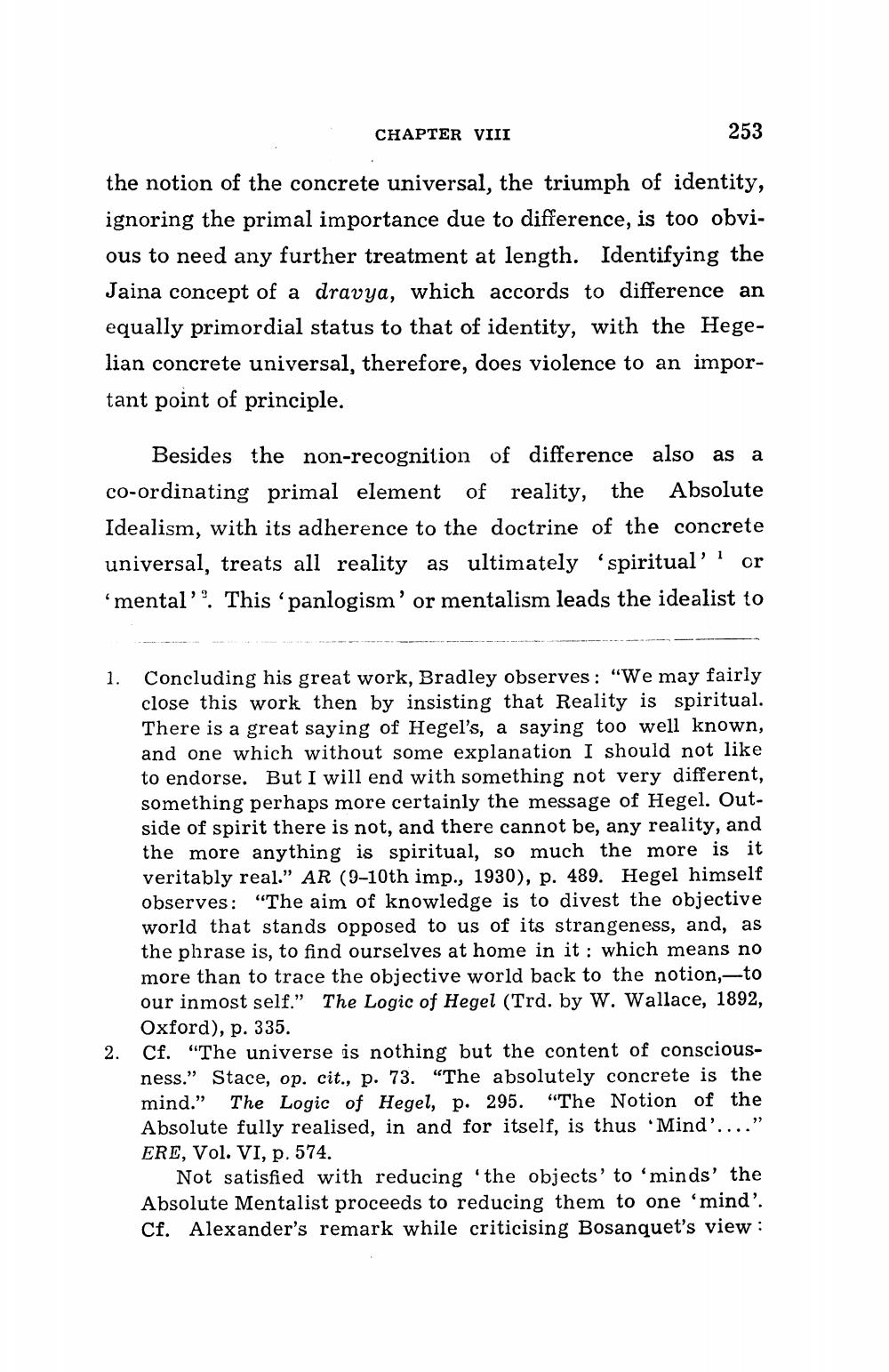________________
CHAPTER VIII
253
the notion of the concrete universal, the triumph of identity, ignoring the primal importance due to difference, is too obvious to need any further treatment at length. Identifying the Jaina concept of a dravya, which accords to difference an equally primordial status to that of identity, with the Hegelian concrete universal, therefore, does violence to an important point of principle.
Besides the non-recognition of difference also as a co-ordinating primal element of reality, the Absolute Idealism, with its adherence to the doctrine of the concrete universal, treats all reality as ultimately 'spiritual' or 'mental'. This 'panlogism' or mentalism leads the idealist to
2.
1. Concluding his great work, Bradley observes: "We may fairly close this work then by insisting that Reality is spiritual. There is a great saying of Hegel's, a saying too well known, and one which without some explanation I should not like to endorse. But I will end with something not very different, something perhaps more certainly the message of Hegel. Outside of spirit there is not, and there cannot be, any reality, and the more anything is spiritual, so much the more is it veritably real." AR (9-10th imp., 1930), p. 489. Hegel himself observes: "The aim of knowledge is to divest the objective world that stands opposed to us of its strangeness, and, as the phrase is, to find ourselves at home in it: which means no more than to trace the objective world back to the notion,-to our inmost self." The Logic of Hegel (Trd. by W. Wallace, 1892, Oxford), p. 335.
Cf. "The universe is nothing but the content of consciousness." Stace, op. cit., p. 73. "The absolutely concrete is the mind." The Logic of Hegel, p. 295. "The Notion of the Absolute fully realised, in and for itself, is thus 'Mind'....' ERE, Vol. VI, p. 574.
Not satisfied with reducing 'the objects' to 'minds' the Absolute Mentalist proceeds to reducing them to one 'mind'. Cf. Alexander's remark while criticising Bosanquet's view:




